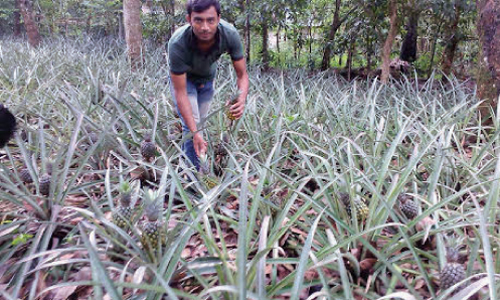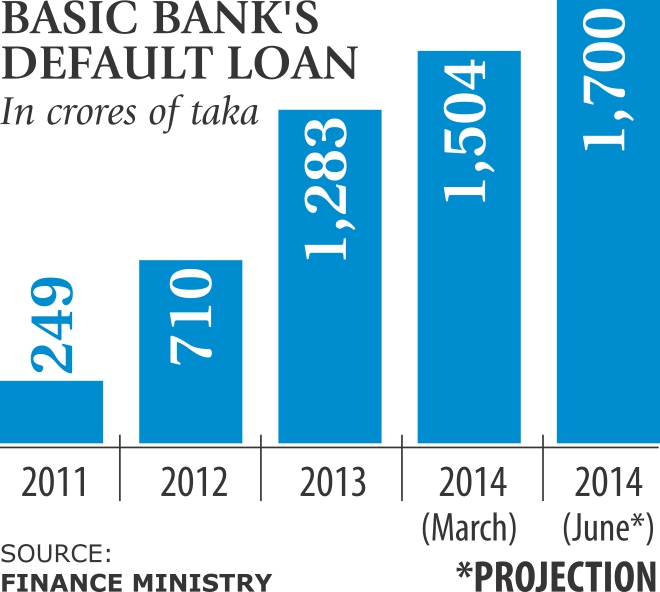SIBL extends tenures of two vice-chairmen

Sayedur Rahman , Mohammad Azam
The tenures of Md. Sayedur Rahman and Mohammad Azam as vice-chairmen of Social Islami Bank Limited (SIBL) were extended.
The Board of Directors of SIBL in its 314th meeting unanimously extended their tenures, said a press release.
Md. Sayedur Rahman is a renowned and successful business personality of the country and a prominent garments sector entrepreneur. He is Managing Director of Lodestar Fashions Limited, Mid Asia Fashions Limited and Jessore Fisheries.
Rahman contributes a lot for the development of RMG and agricultural sectors of the country. He is also engaged in various social welfare activities of the country.
Mohammad Azam is a renowned businessman of Chittagong who has 27 years of experience in business arena. He is the proprietor of Zia & Brothers situated in Chittagong.
Banks, capital market closed today
There will be no public transactions at the scheduled banks today (Tuesday), the first day of fiscal year 2014-15.
Stock markets will also remain closed on the day, official sources said.
Banking source said that scheduled banks will open Tuesday, but all public transactions are not allowed just for the day. Talking to The Independent, a senior official of Bangladesh Bank, on the condition of anonymity said maximum bank officials will join their work station but they will be engaged in completing their pending works.
BB to cut mortgage-free agri loan limit
 A farmer harvests pineapples at a village under Palash upazila in Narsingdi recently. Bangladesh Bank has made a decision to reduce the limit of mortgage-free loan for 28 crops including pineapples at different rates from the new financial year.
A farmer harvests pineapples at a village under Palash upazila in Narsingdi recently. Bangladesh Bank has made a decision to reduce the limit of mortgage-free loan for 28 crops including pineapples at different rates from the new financial year.
Bangladesh Bank has made a decision to reduce the limit of mortgage-free loan for 28 crops at different rates from the new financial year 2014-15.A BB official told New Age that the central bank had made the decision to reduce the mortgage-free loan of the crops to contain the scheduled banks’ credit risk.The farmers are now able to take mortgage-free loan at maximum Tk 91.91 lakh to cultivate gerbera flower on five acres of land, but they will be able to take such loan at maximum Tk 3.06 lakh to plant the flower on 0.5 bigha of land when the central bank’s decision will be implemented.‘The farmers usually take the loan to mortgage their cultivated crops with the banks. But, such type of mortgage do not reduce the banks’ creditrisk resulting that the central bankhas made the decision to reducethe limit of mortgage-free loan’, he said.The BB will attach the decision with its agriculture and rural loan policy for the FY15 which will be announced at the third week of July, the central banker said.Mortgage-free loan amount for the cultivation of mushroom seeds and mushroom will be brought down to between Tk 1.30 lakh and Tk 1.85 lakh depending on the cultivation area from Tk 5.83 lakh-Tk 55.70 lakh.For the cultivation of mangoes, the mortgage-free loan amount will be Tk 1.36 lakh from existing Tk 5.83 lakh, those of banana to Tk 1.50 lakh from existing Tk 4.51 lakh, those of malta to Tk 1.41 lakh from existing Tk 2.01 lakh and those of potatoes to Tk 1.50 lakh from existing Tk 1.50 lakh.For the cultivation of rose, the mortgage-free loan amount will be Tk 1.80 lakh from existing Tk 26.96 lakh, those of gladiolus flower to Tk 1.72 lakh from existing Tk 17.24 lakh, and those of night-queen to Tk 1.47 lakh from existing Tk 4.91 lakh.Mortgage-free loan amount for the cultivation of betel leaf will be brought down to Tk 1.32 lakh from existing Tk 19.87 lakh, those of garlic to Tk 1.28 lakh from existing Tk 2.57 lakh, and those of ginger to Tk 1.36 lakh from existing Tk 4.55 lakh.For cultivation of turmeric, the mortgage free loan amount will be Tk 1.38 lakh from existing Tk 5.22 lakh, those of seeds of onions to Tk 1.36 lakh from existing Tk 4.55 lakh and those of papaya to Tk 1.43 lakh from existing Tk 5.37 lakh.For the cultivation of pineapple the mortgage-free loan amount will be Tk 1.32 lakh from existing Tk 2.65 lakh, those of orange for new garden to Tk 1.14 from existing Tk 2.29 lakh, those of orange for old garden to Tk 1.48 lakh from existing Tk 2.96 lakh.For the cultivation of litchi mortgage-free loan amount will be brought down to Tk 1.54 lakh from existingTk 3.09 lakh, those of honey cultivation to Tk 1.27 lakh from existingTk 9.58 lakh and those of guava toTk 1.28 lakh from existing Tk 2.56 lakh.Mortgage-free loan amount for the cultivation of lotkon will be brought down to Tk 1.14 lakh from existing Tk 2.29 lakh and those of incense stick to Tk 1.39 lakh from existing Tk 2.78 lakh.
News:New Age/1-July-2014Corporate tax from banks goes down
 Banks gave 32 percent less corporate tax to the national exchequer in 2013 than in the previous year due to an increase in their bad loans and shrinking of business owing to political turmoil.
Banks gave 32 percent less corporate tax to the national exchequer in 2013 than in the previous year due to an increase in their bad loans and shrinking of business owing to political turmoil.
Last year, banks deposited Tk 6,091 crore to the state coffer as corporate tax, according to a finance ministry report placed in parliament last month.
The National Board of Revenue collects 60 percent of its total income tax from corporate tax, with banks being a major contributor.
But due to political unrest and corruption, banks' income from commission and service charges fell and their default loans increased, which shrank the banks' interest income.
The rise in bad loans meant banks had to make provisioning against bad loans from their lower incomes.
However, the private and foreign banks, which typically pay the highest corporate tax, paid more or less the same amount as the year before.
In 2013, private banks gave corporate tax of Tk 4,448 crore, which was Tk 4,446 crore the previous year. Foreign banks paid Tk 1,268 crore last year in contrast to Tk 1,221 crore in 2012.
It was the state banks which slacked the most in terms of corporate tax: they paid Tk 375 crore only last year, against Tk 3,370 crore the year before.
The state banks' profits fell drastically after a number of big scams including the one involving the Hall-Mark group were unearthed.
Sonali Bank did not pay any tax in the last three years, while Janata paid only Tk 257 crore last year, which was Tk 3,081 crore the previous year, according to the finance ministry report.
Another scam-hit bank BASIC paid only Tk 55 crore in 2013, half of what it paid in 2012.
An NBR official said the shortfall in tax collection from the target in recent times is mainly due to a fall in collection from banks.
The official said there is little scope for banks to evade tax as their balance sheet is made maintaining a proper accounting system.
Meanwhile, banks expressed dissatisfaction about the continued high corporate tax for them. They now pay 42 percent tax, but were assured by many top level government officials that it would be reduced in the new fiscal year that begins today.
However, it remained unchanged in the finance bill passed in parliament on Saturday.
Helal Ahmed Chowdhury, managing director of Pubali Bank, told The Daily Star that the banks expected the corporate tax to be brought down to 40 percent. He said if that was done it would have a positive impact on lowering the interest rate.
Not only do the banks pay 42.5 percent corporate tax, they also pay other taxes.
“Given the overall backdrop the government should consider lowering the corporate tax,” he added.
Global bank profits hit $920bn as Chinese lenders boom
China’s banks made $292bn in aggregate pretax profit last year -in-Beijing_Reuters-copy.jpg)
People stand in front of the headquarters building of Industrial and Commercial Bank of China Ltd (ICBC) in Beijing
China’s top banks accounted for almost one-third of a record $920bn of profits made by the world’s top 1000 banks last year, showing their rise in power since the financial crisis, a survey showed yesterday.
China’s banks made $292bn in aggregate pretax profit last year, or 32% of the industry’s global earnings, according to The Banker magazine’s annual rankings of the profits and capital strength of the world’s biggest 1,000 banks.
Last year’s global profits were up 23% from the previous year to their highest ever level, led by profits of $55bn at Industrial and Commercial Bank of China (ICBC). China Construction Bank, Agriculture Bank of China and Bank of China filled the top four positions.
Banks in the United States made aggregate profits of $183bn, or 20% of the global tally, led by Wells Fargo’s earnings of $32bn.
Banks in the eurozone contributed just 3% to the global profit pool, down from 25% before the 2008 financial crisis, the study showed. Italian banks lost $35bn in aggregate last year, the worst performance by any country.
Banks in Japan made $64bn of profit last year, or 7% of the global total, followed by banks in Canada, France and Australia ($39bn in each country), Brazil ($26bn) and Britain ($22bn), The Banker said.
The magazine said ICBC kept its position as the world’s strongest bank, based on how much capital they hold - which reflects their ability to lend on a large scale and endure shocks.
China Construction Bank jumped to second from fifth in the rankings of strength and was followed by JPMorgan, Bank of America and HSBC.
ICBC, which took the top position last year for the first time, was one of four Chinese banks in the latest top 10.
Wells Fargo has this year jumped to become the world’s biggest bank by market value, after a surge in its share price on the back of sustained earnings growth. Its market value is $275bn, about $75bn more than ICBC.
The Banker said African banks made the highest returns on capital last year of 24% - double the average in the rest of the world and six times the average return of 4% at European lenders.
News:Dhaka Tribune/1-June-2014


